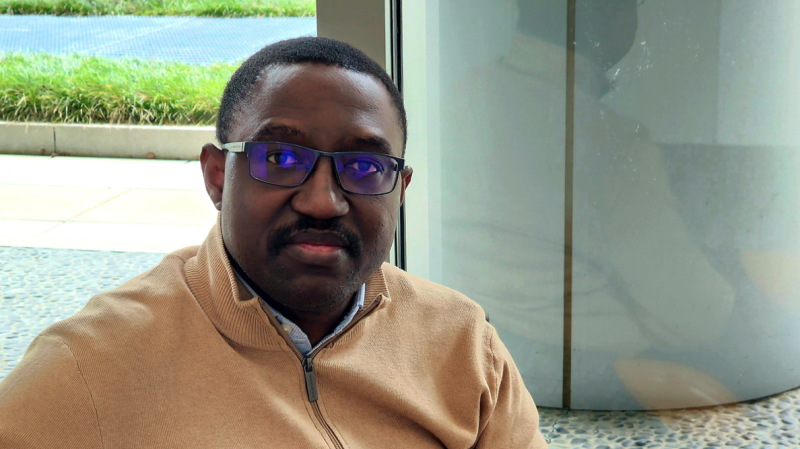
In 2013, shortly after Nosayaba Osazuwa-Peters, PhD, MPH, BDS, had begun work on his doctorate degree in cancer epidemiology at St. Louis University, he gave a talk to a support group for patients with head and neck cancer. He drew on his experience as a dental surgeon in his home country of Nigeria to speak about managing side effects of head and neck cancer treatment, such as dry mouth and tissue damage from radiation.
Afterward a patient approached him, thanked him for the talk, and said, “Doc, do you know how it feels when everything you eat tastes like cardboard?"
Osazuwa-Peters had not heard it put that way before.
Another patient at the talk said to him, “Every night I go to bed, and I just pray I don't wake up in the morning.”
As he continued to talk to these patients, it struck him that “this is the reality of a patient with head and neck cancer.” Treatment often involves surgery and radiation that makes daily activities painful or difficult.
“Their food doesn't taste well, they can't swallow, they can't chew properly, they can't speak properly, they can't smile properly,” he said. “We take for granted how important these things are. But most of the things that we do as humans, our social selves, revolve around talking or eating.”
Those conversations brought about “a moment of shock and clarity” for Osazuwa-Peters. “I was telling myself, ‘How did I not see this?’ I could see on these patients' faces how much it meant to them to share this information.”
So, he asked them, “Have you ever had this conversation with your providers?”
The answer was no.
For his PhD dissertation, Osazuwa-Peters had been planning to focus on the epidemiology of the human papillomavirus (HPV), which is associated with cancers that develop in the throat; the HPV vaccine; and head and neck cancer, a topic he had studied while earning his master’s degree in public health. But after his conversations with those patients, he changed his focus to the epidemiology of suicide among head and neck cancer survivors.
Read the rest of the story in Magnify Magazine here.